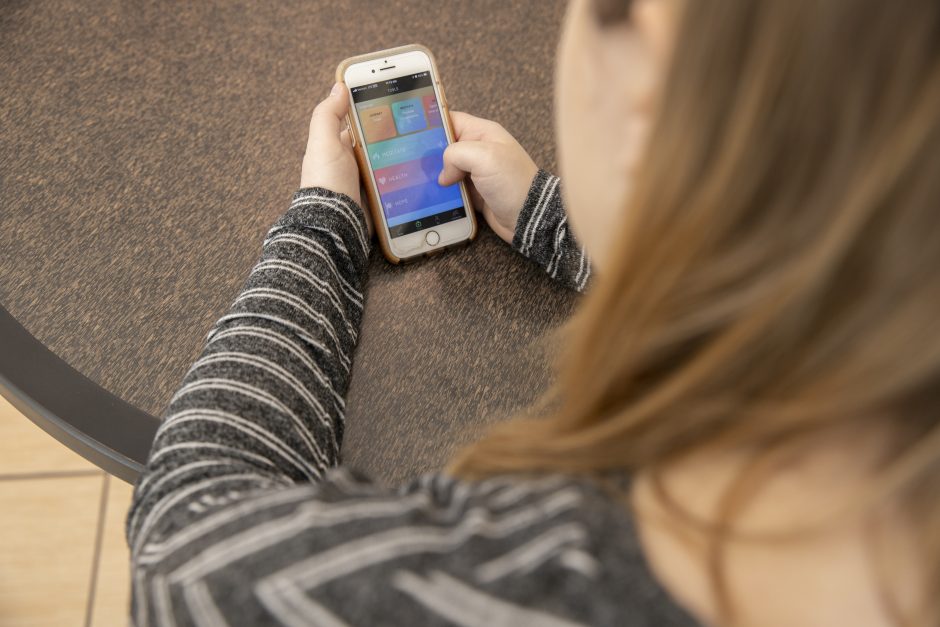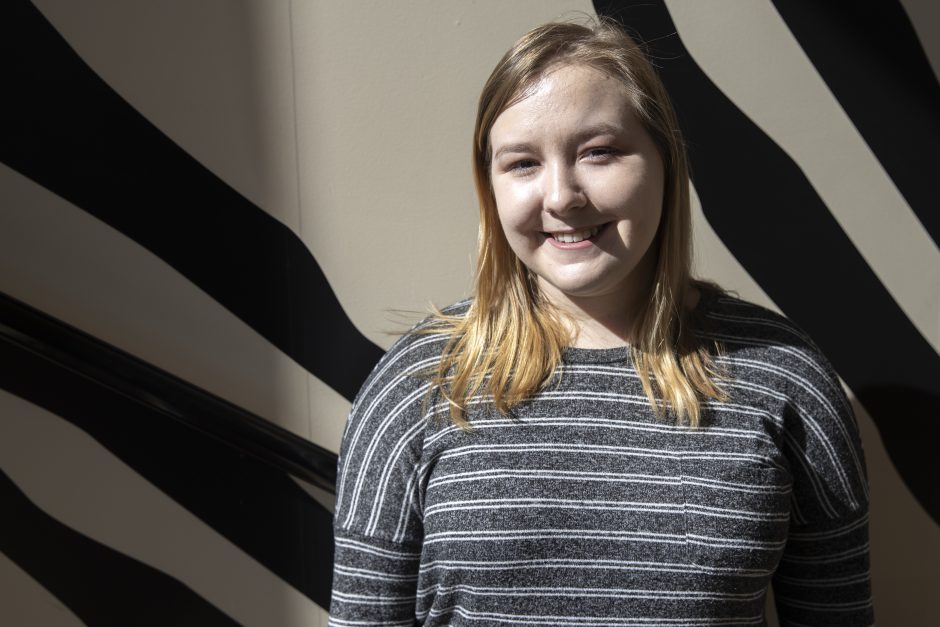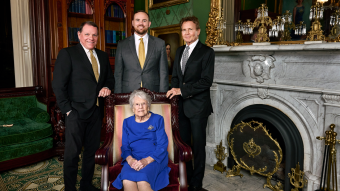March 6, 2020
Contact: Liz McCune, 573-882-6212, mccunee@missouri.edu
A new initiative by the University of Missouri is helping members of the university community be proactive about their mental health — and it all starts with picking up the phone.
Last fall, the University of Missouri launched a system wide subscription to Sanvello, an app that offers techniques to relieve stress and symptoms of anxiety and depression. With the subscription, students, faculty and staff who sign in with their campus or system email address can access premium features without having to pay monthly fees.

Christy Hutton, director of the Wellness Resource Center, said the app has been particularly well-received by students. Since its launch, more than 2,200 students have signed up with Sanvello, and data indicates that those using it are experiencing improved mood.
“We really wanted to give students a tool that they literally had in their back pocket that could provide some in-the-moment skills to help cope with stress, anxiety and depression,” Hutton said. “We're doing a lot of things right now to try to reach students in ways that we haven't before.”
Hutton saw a need for the incorporation of an app like Sanvello when she noticed an increase in demand among MU students for more web-based resources for mental health. Hutton and a team of professionals from the MU Counseling Center and MU Student Health and Well-Being began looking into different mobile programs in June. Sanvello stood out because of its navigation, design and commitment to protecting students’ privacy.
How it works
The app’s features are customizable to serve the user’s needs. For example, during meditation, users can choose to focus on being present or on calming down before going to sleep. The habit-
tracking feature can measure standard wellness habits such as drinking water or getting enough sleep, but it can also track how often the user engages in a hobby that makes them happy. In the app’s social forum, users can post what they are grateful for and other users can leave “hearts” on the posts to offer encouragement and support.
Danielle Devers, the outreach and student engagement coordinator for the Wellness Resource Center, thinks Sanvello is a great preventative tool for students who want to benefit from healthy mental practices even if their feelings of anxiety or depression don’t necessarily meet a clinical level of diagnosis.
“There is research that shows gratitude has a lasting impact on the brain,” Devers said. “When you start to practice gratitude, when you start to practice meditation, when you go through some of the tutorials and walkthroughs, the app is helping you practice skills that can improve your mood and move you away from feeling depressed or anxious.”
How students benefit
Maggie Fox is a senior majoring in psychology and minoring in both Spanish and English. She enjoys using the app’s guided meditation to calm down when feeling anxious or before bed. She has been a peer educator with the Wellness Resource Center since her freshman year and is now the vice president of quality improvement for the MU Well-Being Peers.
When students come into the resource center needing help with the app, Fox helps them learn how to use the features in a way that best helps them. With plans to become a social worker, Fox hopes users will take advantage of the tools the app provides to promote mental health.
“I want to make sure people know that it’s okay to ask for help and to receive help,” Fox said.

Looking ahead
Hutton and Devers have incorporated Sanvello into the three-week Habits for a Healthy Mind Workshop that the Wellness Resource Center hosts. The weekly, Wednesday evening sessions help students track their habits, pay attention to how habit influences mood and implement skills like gratitude, self-compassion and analyzing thought patterns, all while using Sanvello as a medium. Students can RSVP for these sessions on MU Engage.
Hutton is also working on having the app refer students to counseling services on campus and around Columbia, in case they need more than what the app provides. Whether or not the app is used alongside regular therapy sessions, Hutton appreciates the way Sanvello is there for students whenever they have a need.
“Life happens at two in the morning. We have our crisis line, but a lot of times, students will say, ‘Well, I didn’t think this was a big enough deal to call the crisis line,’ or, ‘I didn’t really need the crisis line, I just needed to know what to do,’ ” Hutton said. “While these are great skills to help somebody do well academically, more importantly, they are skills to help somebody do well as a human, which is priority number one for me.”



